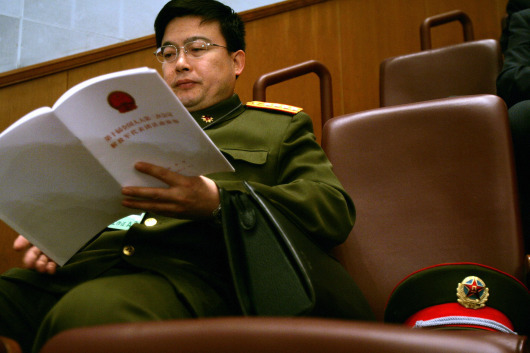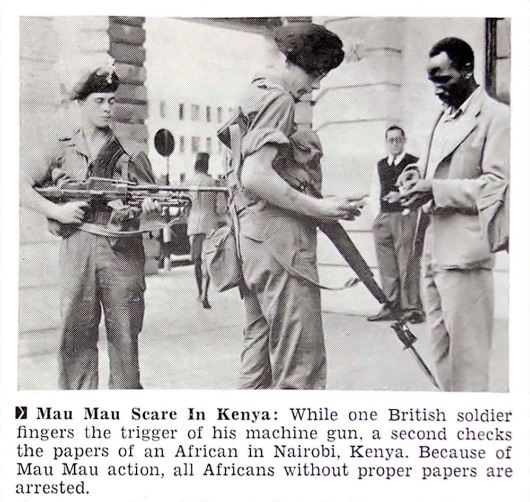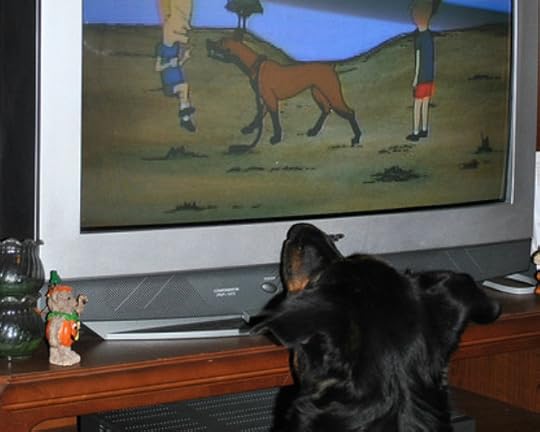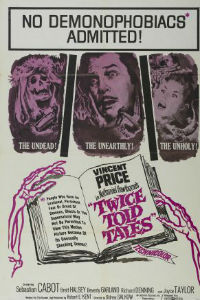Thomas E. Ricks's Blog, page 173
July 5, 2012
The most surprising thing I read yesterday

While Tom Ricks is away from his blog, he has selected a few of his favorite
posts to re-run. We will be posting a few every day until he returns. This
originally ran on March 20, 2009.
In the year 2000, the PLA [People's Liberation Army] had more students in
America's graduate schools than the U.S. military, giving the Chinese a growing
understanding of America and its military."
(p. 27, 2008 Joint Operating Environment, a study by the U.S. Joint Forces
Command)
(Hat tip to my very smart CNAS colleague Nirav Patel on this)
July 3, 2012
Obama's coolness with the British PM
While Tom Ricks is away from his blog, he has selected a
few of his greatest hits to re-run. We will be posting a few every day until he
returns. This originally ran on March 4, 2009
.

I wonder if the arm's-length treatment has anything to do with the
possibility that the Brits may have tortured his grandfather in Kenya while holding him for two
years.
Inside an Afghan battle gone wrong (VII): What it tells us about the Afghan war

While Tom Ricks is away from his blog, he has selected a
few of his greatest hits to re-run. We will be posting a few every day until he
returns. This originally ran on February 2, 2009.
A friend who has read this
series on the small but deadly battle at Wanat last summer suggested that we
should consider one more issue -- that is, what this incident might tell us about
the war in Afghanistan.
I think the insights of this infantry veteran, who must remain anonymous
because of his position, are important. Let him explain:
We are so very exposed in this land-locked country, with no infrastructure,
not nearly enough enablers, not enough transport... it's frightening,
really.
. . . [R]emind folks that this is an enemy that may in fact look more like
Hezbollah in Lebanon 2006 than al Qaeda in Iraq. This is an enemy that
apparently has no problem massing force in space and time, and is tactically
proficient at understanding our weaknesses. My own view is that we have to
employ a properly resourced COIN mission . . . while simultaneously ensuring
that those folks out in the hinterland have all the enablers they need. A tough
problem.
Not only are his points important but they get at a key problem that the
battle of Wanat highlighted: the ongoing, long-running confusion between a
counterterrorism mission and a counterinsurgency one. How do the two fit
together? The U.S. military, embroiled in two such wars now simultaneously, in
Iraq and Afghanistan, would do well to spend more time on that question.
That's all I have. I am sure there are more lessons here. What else should we
understand about Wanat?
July 2, 2012
Quote of the day

While Tom Ricks is away from his blog, he has
selected a few of his greatest hits to re-run. We will be posting a few
every day until he returns. This originally ran Jan. 5, 2009.
A "senior [American] officer" in Iraq explains
the interagency process in the January issue of Marine Corps Gazette:
"I'll tell you what interagency means. It means there's no plan, there's nobody
in charge, and there's no way to fix it."
Obama's world

While Tom Ricks is away from his blog, he has
selected a few of his greatest hits to re-run. We will be posting a few
every day until he returns. This post originally ran Jan. 5, 2009.
Fareed Zakaria interviewed Barack Obama last summer
on his CNN show, and re-ran the interview last month. It was only recently, I
am embarrassed to say, that I got around to reading the transcript of this terrific session. If you
haven't read it, you should. It is the best summary of the Obaman world view
I've seen, more instructive than reading a month of op-ed yammerings.
Despite my pops at Obama on this blog, I am consistently impressed by his
breadth and poise.
Here are the comments that especially struck
me, with my introductions in bold:
Stop
snubbing Russia, even if Putin is a hooligan. "Look. If we're going to do something about nuclear
proliferation -- just to take one issue that I think is as important as any on
the list -- we've got to have Russia involved." A little respect goes a long way.
Bring
China more into the international conversation. "[W]e have to
engage and get them involved and bought-in into dealing with some of these
transnational problems."
Enough
with the Vietnam overhang. "The Vietnam War had drawn to a close when I was
fairly young. And so, that wasn't formative for me in the way it was, I think,
for an earlier generation."
Take
a true multilateral approach. "[W]e should always strive to create
genuine coalitions -- not coalitions that are based on us twisting arms,
withholding goodies, ignoring legitimate concerns of other countries, but
coalitions that are based on a set of mutual self-interests."
Emulate
the caution and pragmatism of Truman and Bush senior. "One of the
things that I want to do, if I have the honor of being president, is to try to
bring back the kind of foreign policy that characterized the Truman
administration with Marshall and Acheson and Kennan, but also characterized, to
a large degree, the first President Bush with people like Scowcroft and Powell
and Baker, who I think had a fairly clear-eyed view of how the world works and
recognized that it is always in our interests to engage, to listen, to build
alliances, to understand what our interests are, and to be fierce in protecting
those interests, but to make sure that we understand it's very difficult for us
to -- as powerful as we are -- to deal with all these issues by
ourselves."
Deal
with terrorism more broadly-less "direct action" killing, more
microlending. "[W]e have to hunt down those who would resort to
violence to move their agenda, their ideology forward. We should be going after
al Qaeda, and those networks, fiercely and effectively.
"But what we also want to do is to shrink
the pool of potential recruits. And that involves engaging the Islamic world
rather than vilifying it, and making sure that we understand that, not only are
those in Islam who would resort to violence a tiny fraction of the Islamic
world, but that also, the Islamic world itself is diverse, and that lumping
together Shia extremists with Sunni extremists, assuming that Persian culture
is the same as Arab culture -- that those kinds of errors in lumping Islam
together result in us not only being less effective in hunting down and
isolating terrorists, but also in alienating what need to be our long-term
allies on a whole host of issues."
Be
very wary of arbitrary government actions, both here and abroad. Living in Indonesia just a year after the anti-Sukarno
coup left several hundred thousand people dead, Obama became "aware that,
for example, the generals in Indonesia, or the members of Suharto's family,
were living in lavish mansions, and the sense that government wasn't always
working for the people, but was working for insiders -- not that that didn't
happen in the United States, but at least the sense that there was a civil
society and rules of law that had to be abided by. My stepfather was
essentially dragged out of the university he'd been studying in in Hawaii, and
was conscripted and sent to New Guinea. And when he was first conscripted, he
didn't know whether he was going to be jailed, killed -- that sense of
arbitrariness of government power."
Small
is good.
His mother "was a specialist in international development, who worked --
was one of the early practitioners of microfinancing, and would go to villages
in South Asia and Africa and Southeast Asia, helping women buy a loom or a
sewing machine or a milk cow, to be able to enter into the economy."
So, to summarize:
Winners: Neoliberals, Muslim
moderates, nonproliferation specialists, panda-hugging diplomats who want to
engage China, and centrist think tanks like my CNAS. And Joe Nye,
the "soft power" guy.
Losers: Autocratic Third World generals.
Are you listening, Burma? (And Pakistan?
That's a much tougher case. The future of that country is, I think, the biggest
threat the world faces today.) I also suspect that the free ride is over for
Saudi Arabia, though I am not quite sure why.
June 29, 2012
Best Defense in re-runs 'til Labor Day, but you can get busy with these reading lists

With my book all done, and ready to be published
Oct. 30, I've decided to take a break from the blog. This is partly because I
plan on doing several overnight camping trips this summer, mainly during
weekdays, and also because I just want a breather.
Between
now and then, Best Defense will be in re-runs, re-posting some of the more
interesting items from 2009, 2010, and 2011. For those of you who joined us
only recently, it will be a chance to catch up on the past discussions. I've
also asked Best Defense's chief canine correspondent if she wants to do a "best
of" series of re-runs on Fridays with her War Dog of the Week column.
Also,
to keep you busy til September, today I'm posting two items on reading
lists.
C U
after Labor Day. Between now and then, I will surface on occasion with comments
that can't wait, as well as some guest posts.
My best military book list ever: The ones that I went back to read a second time

Thinking about reading Good-bye to All That for the fourth
time, as I discussed recently, I began to wonder which other military books
I've re-read.
This makes for an elite list of books for me, the all-time
favorites, would be books I have voluntarily re-read. Anyone can read a book
once and like it. The test of a second time is much harder: Did you find this
book somehow so compelling that, knowing what it basically has to say, you went
back and invested many additional hours in it?
This list turned out to be shorter than I expected. In
literature, there were a bunch -- Shakespeare's major plays, John Updike's Couples (beautifully written snapshot of
the early 1960s), my favorite books of poems by W.H. Auden, William Butler
Yeats, and Philip Larkin. I just realized I've read The Friends of Eddie Coyle three times, which probably is one too
many. (The first time I read it, I finished it and then immediately began
reading it again, because I wanted to see how someone could deliver a plot
solely through dialogue. I did something similar with Jonathan Franzen's The Corrections, but only read that
twice.) I've also read David Hackett Fischer's Albion's Seed twice (great book, lousy title).
But in military affairs -- histories, memoirs, analyses -- the
list is much smaller. These books are really special. Or I was too ignorant to
appreciate them the first time. Anyway, anyone can put together a list of books
they read once. But this to me is different: Military books that I read twice.
In addition to the books listed below, there are many books I dip into again
and again (Eliot Cohen's Supreme Command, Russell Weigley's The American Way of War) but that
isn't the same as going back and reading it cover-to-cover, pen in hand (which
is the only way to really study a book).
Here is what I came up with:
Karl Von Clausewitz, On War. Because I didn't understand
it the first time. (This is a repeated motivation, you will see.) I first read
this in the early 1990s, then re-read it in 2005 as I was preparing to write Fiasco. I reviewed it again a lot when I
was writing The Gamble, but didn't
re-read the whole thing, so I am counting this as a twice, not a thrice.
H.R. McMaster, Dereliction of Duty. Likewise, I
didn't understand it the first time.
Also, the first time I read it for what it could tell me about the Army of the
1990s. The second time I read it, more properly, to better understand the
American mishandling of the Vietnam War. This book provides an account of
exactly how not to run a war.
James McDonough's Platoon Leader. I've mentioned this
one before.
The memoirs of Colin Powell and Norman Schwarzkopf. The first time I
read these as a reporter for news (that is, something we didn't know before,
even if trivial). The second time I read them to try to understand the 1991
war, especially its outcome. Likewise,
Gordon and Trainor's The Generals' War, which is a
terrific book.
Andrew Krepinevich, The Army and Vietnam. Ditto. The
first time I read it to better understand the Army. Ten years later I read it
again to better understand the Vietnam War.
Dave Richard Palmer, Summons of the Trumpet. The best operational
history of the Vietnam War, so far. There really is not a good history of
the war.
The pattern here, I think, grows out of my feeling that we
as a nation still don't understand what happened in the Vietnam War. I keep on
thinking of perhaps trying to write a modern, definitive history of that
war -- but then I think, do I really
want to spend the next six or so years thinking about the Vietnam War?
The mother of all reading lists: Some other suggestions for your beach reading

Just to make sure you don't get bored over the summer, here
are some other military history reading lists for you:
Rep. Ike Skelton's overview list.
Ten of my own favorites (the list would be a bit different
now -- in part because of the interesting comments on this post).
A Pentagon reading list.
A reading list from Guantanamo Bay detainees.
A pre-deployment list for platoon leaders going to
Afghanistan.
My list for a friend deploying to Afghanistan:
The 101st Airborne's list for Afghanistan.
And the 10 best post-deployment books.
Here's my list of what to read if you are a civilian going
to work at the Pentagon.
But if you really want to have a fun summer, here is a
reading list on terrorism:
Here's one on COIN:
One on intelligence.
Here's D'Este's besties on WWII:
A "gun nut's" list.
A unusual Vietnam War list.
Adm. Stavridis' list of fiction (20 novels).
This guy also has some better suggestions near the end of
his interview.
For real obscurity, a Tory's reading list.
To top it off, here are some roundups I did of reading
lists:
And yet another one.
And a study of the solder's load!
For a change, here is a list of books I never finished:
Since then, to my regret, I finished The Education of Henry Adams -- one of
the most overrated books I've ever read, along with Liddell Hart's Strategy.
And a list of books about Iraq to avoid.
Finally, once you get tired of reading, here is a list of
terrific war movies.
Rebecca's War Dog of the Week: USAF Academy evacuates kennels as Colorado wildfire burns too close for comfort

By Rebecca Frankel
Best Defense Chief Canine Correspondent
In what's now officially been declared
a "major federal disaster" and the worst wildfire in Colorado history, the
Waldo Canyon fire that started last Saturday and flared through Colorado
Springs since Tuesday has now destroyed 346 homes and claimed at least one
life. The encroaching flames forced 35,000 people to be evacuated from
their homes this week, including the eight MWDs and two handlers -- Whaley and
Jensen -- on duty at the USAF Academy kennels.
The fire breached
the Academy's grounds on Tuesday, burning "about 10 acres of
land along the southwest boundary of the academy's 28-square-mile boundary."
When swift winds pushed the fire just two miles south of the kennels, putting
them in the line of fire, the call was made to evacuate the dogs. Kennel master
Chris Jakubin told me that, "ash was falling" when he got to the kennels on
Tuesday and there was "little visibility." The poor air quality was also a big
concern and getting the dogs away from the smoke to safe housing became the priority,
so the evacuation plan was put into effect and the dogs were brought over to
nearby Buckley Air Force Base. Jakubin said Wednesday's evacuation went very
smoothly and their friends over at the Buckley kennels lent fast assistance.
The transfer took only a few short hours.
I got the chance
to spend some time out at the USAF Academy kennels in December where I met MWD
Haus -- who's pictured waiting patiently above -- as well as meet some of the
handlers and dogs over at Buckley.
The Colorado canine community is a tight-knit and uniquely collaborative one
and the no-question-about-it support exchanged this week comes as no surprise.
[image error]
While the wildfire continues to rage and firefighters from
all over the country battle to keep the blaze's perimeter in check, yesterday's
calm winds seem to have helped steady the situation -- containment is now reportedly
at 15 percent. The Academy, which reports today's air quality as "good," will
be allowing some evacuees to return back to their base housing later today. Hopefully,
MWDs Haus, Boda, Oli, Rruck, Benga, Mack, and the rest of the crew will be
settled back home soon. Our war-dog thoughts are in Colorado this week.
Rebecca Frankel, on leave from
her FP desk, is currently writing a
book about military working dogs, to be published by Free Press.
June 28, 2012
The Joint Staff study of the post-9/11 wars: What they were really trying to say

My friend John Nagl raved about the new study, by the Joint
and Coalition Operational Analysis (JCOA) division of the J-7 department of the
staff of the Joint Chiefs of Staff, titled "Decade of War, Volume 1: Enduring Lessons
from the Past Decade of Operations."
That surprised me, because I found the report very cautious,
kind of treading warily around some real problems. Then the light bulb came on,
and I realized what Nagl was seeing that I wasn't: The report was written in
Pentagonese. You have to read between its lines.
As a public service, here I offer a translation into basic
readable English:
"Lesson One:
Understanding the Environment"
Unlike most of their lessons, they just get this one flat
wrong. Missed the target entirely. They take the easy road and basically say
that the military was right and the rest of the government didn't show up in
Iraq. What they can't say: The military was at odds with the Bush administration over the mission there. The Bush administration's ambitions for
Iraq were revolutionary, as demonstrated by Bremer's sweeping orders. The U.S.
military, without asking permission, re-defined the mission as stability, which
undercut the civilian objective. So the real lesson here is that senior civilian
and military officials need to bring to the surface their differences and
examine their strategic assumptions. If you can't agree on strategy going in,
you've got a problem.
"Lesson Two: Conventional
Warfare Paradigm"
They recommend a bunch of bureaucratic steps to encourage
adaptability. What they should have said: You want the system to adapt? Then
reward success and punish failure. People will sit up and take notice.
Publicize these actions, and you soon will have an adaptive system. You know
what is most conventional? An approach to leadership that discourages
people from taking risks and doesn't punish them for passivity. You can't
win a war if success is defined as keeping your guys as much on the FOB as
possible.
"Lesson Three: Battle
for the Narrative"
Again, they call for a series of small but complex steps
that tinker with the machine. It's all lipstick on a pig. What they should have
said: You won't be successful in media and information operations as long as
the consequences for U.S. military officers of "allowing a bad story" to appear
are worse than for not engaging the media at all. Once they are encouraged to
take risks they can experiment with the enemy formulation that information
operations shape kinetic operations, not the opposite.
"Lesson Four:
Transitions"
They want transitions better planned and managed. But of
course. What they don't say: If you don't have commanders and key staff engaged
for the duration, you always will be falling behind the enemy in understanding.
And adjusting. We need to get away from one-year unit rotations. Some
of the possible
alternatives have been discussed
on this blog.
"Lesson Five:
Adaptation"
See Lesson Two. Repeat as needed.
"Lesson Six: SOF-GPF
Integration"
They want to establish relationships, train together, and
institutionalize best practices in collaboration. What they were trying to say:
"We're all on the same side. Act like it, and instead of holding pissing
contests, find ways to help each other. Senior commanders should have the
discipline to counsel and even remove subordinates who don't get this." A
couple of removals will get the message across.
"Lesson Seven:
Interagency Coordination"
They want to "operationalize" interagency work. The real
problem here is that the military tends to act like "the interagency" is a
one-way street. That is, it gives orders to civilians but is very wary of
accepting them. The rest of the government will be more willing to show up and
play nice when regimental commanders are able to take orders from State
Department officials.
"Lesson Eight:
Coalition Operations"
More tinkering and better training recommended. The real lesson here is that it is only a
genuine coalition if non-American members have a voice. Americans tend to be
hubristic in assuming that our way is the best way. We really need to
re-examine our whole approach to coalition operations. The best way to begin is
by studying Eisenhower's handling of the coalition in World War II. ("I didn't
fire you because you called him a son of a bitch. I fired you because you
called him an English son of a
bitch.")
"Lesson Nine:
Host-Nation Partnering"
Their basic conclusion: We need to do better. What they
don't say: We need to shut up and listen to our host nation partners. Direct
U.S. intervention should be the last resort. The best model often is indirect
action. That is, instead of the U.S. trying to help Mexico with its drug war,
the U.S. can help the Colombians help Mexico. Generally, we should do things
the host nation way -- which, if we ever want to leave, is the only sustainable
way.
"Lesson Ten: State Use
of Surrogates and Proxies"
They say we should worry about people doing this. What they
don't say: Over the last decade in Iraq, we established a whole bunch of nasty
precedents about the use of force by mercenaries that could come back and bite
us on the butt. Just wait until Chinese
mercenary companies start operating in Africa.
"Lesson Eleven:
Super-Empowered Threats"
They say we should worry about individuals and small groups
having a long reach because of the internet and other information technologies.
What they don't say: Americans invented the internet and much of this other
stuff. If the U.S. government isn't using these tools well, that probably is
because it isn't using the right people. Bureaucracies can never react as
swiftly as small groups. So it probably is time to establish an Army Reserve
information operations unit in Silicon Valley. In fact, way past time. Maybe
even a Joint infowar group?
"Conclusion"
"This report," they write, "describes the eleven strategic
themes derived from the enduring, joint lessons of the past decade of war, as
culled from the 46 studies conducted by the JCOA since its inception in 2003."
Tom's conclusion: There is indeed a lot in this report if you read between the
lines and decode it into English.
Thomas E. Ricks's Blog
- Thomas E. Ricks's profile
- 436 followers



